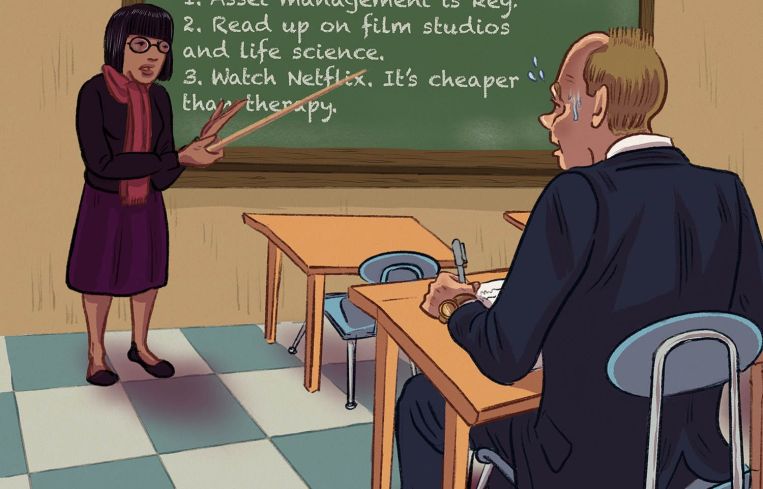Lenders’ Lessons From COVID
By Mack Burke November 9, 2020 10:00 am
reprints
Sir Winston Churchill once said, “Never let a good crisis go to waste.”
While Churchill spoke from the political standpoint of being able to leverage a disaster, financial and economic disruptions spawn new strategies and insight into how to properly maneuver within a sector.
But what have the last eight months taught the commercial real estate finance market?
“The crisis has reinforced a couple of things we already knew,” said Brookfield Asset Management’s Andrea Balkan. “First, don’t panic — things are never as good as they look during a boom or as bad as they look during a downturn. Second, sponsorship is as important as the quality of the real estate.”
Over the last 10 years, the commercial real estate debt markets mostly acted responsibly and with a level of restraint as a result of lessons learned from the global financial crisis. Market participants, for one thing, often expressed the need to “consider the downside” on any deal in the past decade.
Predicting the impact of a global pandemic and its subsequent shutdowns, was, of course, impossible. Now, more than ever, cash flow is king.
“In recent times, the risk of a global pandemic and the associated impact on commercial real estate assets was rarely contemplated, if ever, in the normal course of assessing asset valuations and credit risks inherent in lending transactions,” said Morgan Stanley’s Kwasi Benneh. “The consideration of macro risks that result in the inability of a borrower to generate cash flow from a commercial real estate asset is here to stay as a result of COVID.”
Benneh said that in the asset-backed lending market in which he plays, “participants…will have to embed innovative structures in deals going forward” to account for potential cash flow risks.
“[Now,] there is no such thing as ‘recession proof’ real estate; you need a margin of safety in everything you do,” said Josh Zegen, co-founder of Madison Realty Capital. “No one would have ever underwrote a world shutting down all at once.”
Despite the new wrinkles to consider, lenders’ restraint in underwriting over the last several years has paid off. Not having to worry about too many fractures on the balance sheet while trying to adjust to a new normal is a win-win.
“All the hard work of getting the right structure and careful underwriting on new deals over the past few years was very frustrating at times, and the team often wondered why we couldn’t be more aggressive,” said Jeff Fastov, senior managing director at Square Mile Capital Management. “Now that the tide has gone out, that high standard of care is making a difference in the credit performance of our loans. The lesson learned is that you can’t cut corners if you’re in it for the long run.”
Looking outside individual dealmaking, Wells Fargo’s Kara McShane hinted that the capital markets and broader commercial property sector wouldn’t be where they are without life rafts provided by the federal government.
“Never underestimate the power of the Fed,” McShane said. “While there are certainly challenges in the market today, the Fed’s actions to inject and promote liquidity, from cutting rates to quantitative easing to [term asset-backed securities loan facility] and everything in between, have helped keep cap rates range-bound. As of today, despite the low amount of transaction activity, the Fed’s activity has helped maintain a floor on asset values.”
Following Federal Reserve action, it was up to the market to deploy the measures, and Greystone Founder and CEO Stephen Rosenberg said he’s been inspired by the market’s willingness to show compassion and work collaboratively through the COVID-19 muck.
“It might be hard to tell, given the gloomy news of late, but I am uplifted by the amount of empathy and care we have been able to approach the market with as it suffers some setbacks,” said Rosenberg, whose firm is a staunch player in the multifamily and agency lending space. “For the most part, tenants are prioritizing rent, landlords are prioritizing their debt payments, and, when there is an opportunity to help others, most people take it.”
Basis Investment Group’s Shaunak Tanna likened the compassion, empathy and flexibility to the phrase: “offense is the best form of defense.”
“[We’ve learned we need to be] proactive in anticipating issues and maintain strong lines of communication between borrowers, lenders and investors,” Tanna said. “We proactively reached out to our borrowers, rolled up our sleeves, and offered solutions while keeping our investors constantly updated. We were also able to selectively deploy capital to take advantage of market dislocation. Another lesson learned, or rather reinforced by this cycle, is that the quality of sponsorship is as important as the quality of real estate.”



